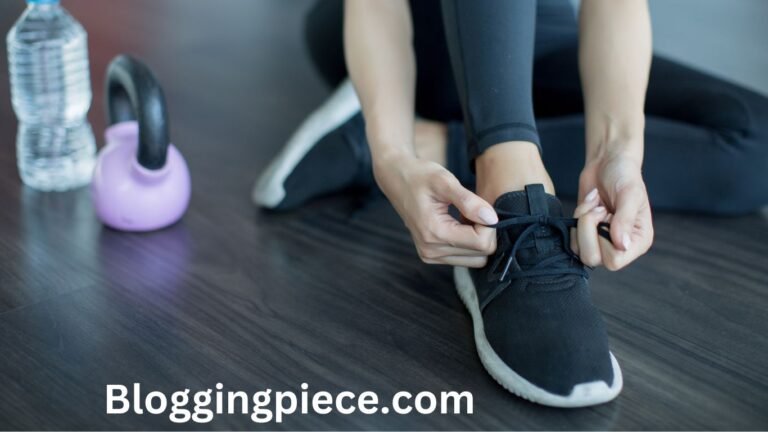Understanding Plantar Fasciitis
Plantar fasciitis is a condition characterized by inflammation of the plantar fascia, a thick band of tissue running along the bottom of the foot connecting the heel bone to the toes. This inflammation typically results in sharp, stabbing pain in the heel, especially during the first steps in the morning or after long periods of standing or walking.
Causes of Plantar Fasciitis
Understanding the root causes of plantar fasciitis is essential for finding effective relief. Common causes include:
- Overuse: Prolonged periods of standing or intense physical activity can strain the plantar fascia.
- Foot Structure: Flat feet, high arches, or abnormal walking patterns can contribute to the condition.
- Improper Footwear: Shoes lacking proper arch support or cushioning can exacerbate plantar fasciitis.
Key Features of Plantar Fasciitis Shoes
Selecting shoes specifically designed to alleviate plantar fasciitis can make a significant difference. Here are the key features to consider:
Arch Support
Proper arch support is essential for distributing pressure evenly across the foot, reducing strain on the plantar fascia. Look for shoes with built-in arch support or consider using orthotic inserts.
Cushioning
Adequate cushioning helps absorb shock and reduce impact on the heel. Memory foam or gel cushioning can provide excellent support and comfort.
Heel Support
A firm heel counter provides stability and prevents excessive movement, which can strain the plantar fascia. Ensure the shoes have a snug fit around the heel to enhance support.
Flexibility
Shoes should be flexible enough to allow natural foot movement while providing adequate support. Avoid overly rigid shoes that restrict movement.
Material Quality
High-quality materials, such as breathable mesh and durable rubber, enhance comfort and longevity. Opt for shoes with moisture-wicking properties to keep your feet dry and comfortable.
Top Plantar Fasciitis Shoes for Different Activities
Different activities require different types of footwear. Here, we highlight the best plantar fasciitis shoes for various activities to ensure you stay comfortable and pain-free.
Best Walking Shoes
- Brooks Addiction Walker: Known for its exceptional arch support and cushioning, this shoe is a top choice for walking enthusiasts.
- New Balance 990v5: This shoe offers a perfect balance of stability, support, and cushioning, making it ideal for long walks.
Best Running Shoes
- ASICS Gel-Kayano 27: Featuring gel cushioning and excellent arch support, this shoe provides superior comfort for runners with plantar fasciitis.
- Saucony Guide 14: This shoe offers a great combination of support and flexibility, helping runners maintain proper foot alignment.
Best Casual Shoes
- Vionic Walker Classic: With its built-in orthotic support and cushioned sole, this shoe is perfect for everyday wear.
- Orthofeet Asheville: This casual shoe combines comfort and style, featuring a contoured orthotic insole and soft interior lining.
Best Work Shoes
- Dansko Professional Clog: Known for its all-day comfort and support, this clog is a popular choice among professionals who spend long hours on their feet.
- Clarks Tilden Walk: This stylish and supportive shoe is perfect for office wear, providing excellent cushioning and arch support.
Best Sandals
- Birkenstock Arizona: These sandals offer great arch support and a contoured footbed, making them a favorite for those with plantar fasciitis.
- Vionic Tide II: Combining style and functionality, these sandals feature built-in orthotic support and cushioned soles.
Tips for Finding the Perfect Fit
Finding the right plantar fasciitis shoes requires careful consideration and proper fitting. Here are some tips to help you find the perfect pair:
Measure Your Feet
Feet can change size over time, so it’s essential to measure your feet regularly. Use a Brannock device or visit a professional shoe store for accurate measurements.
Try Shoes in the Afternoon
Feet tend to swell throughout the day, so try on shoes in the afternoon when your feet are at their largest. This ensures a more accurate fit.
Wear Appropriate Socks
When trying on shoes, wear the type of socks you plan to use with the shoes. This helps ensure a proper fit and avoids any discomfort later on.
Walk Around
Take the time to walk around the store to test the shoes. Pay attention to any areas of discomfort or pressure points that may indicate an improper fit.
Check Return Policies
Ensure the store has a good return policy in case the shoes don’t work out. This allows you to test the shoes at home and return them if necessary.
Additional Tips for Managing Plantar Fasciitis
While wearing the right shoes is crucial, additional measures can help manage plantar fasciitis and alleviate pain.
Stretching Exercises
Regular stretching exercises can help improve flexibility and reduce tension in the plantar fascia. Focus on stretching the calf muscles, Achilles tendon, and the bottom of the foot.
Ice Therapy
Applying ice to the affected area can help reduce inflammation and alleviate pain. Use an ice pack or a frozen water bottle to massage the heel for 15-20 minutes several times a day.
Orthotic Inserts
Consider using custom orthotic inserts to provide additional support and cushioning. These inserts can be especially beneficial for individuals with abnormal foot structures.
Maintain a Healthy Weight
Excess weight can put additional strain on the plantar fascia. Maintaining a healthy weight through diet and exercise can help reduce pressure on the feet.
Avoid High-Impact Activities
High-impact activities, such as running on hard surfaces, can exacerbate plantar fasciitis. Opt for low-impact exercises like swimming or cycling to stay active without putting extra strain on your feet.
Conclusion
Choosing the right plantar fasciitis shoes is essential for managing pain and improving quality of life. By considering factors such as arch support, cushioning, and material quality, you can find the perfect shoes for your needs. Additionally, incorporating stretching exercises, ice therapy, and other management strategies can further alleviate symptoms and prevent future flare-ups.


